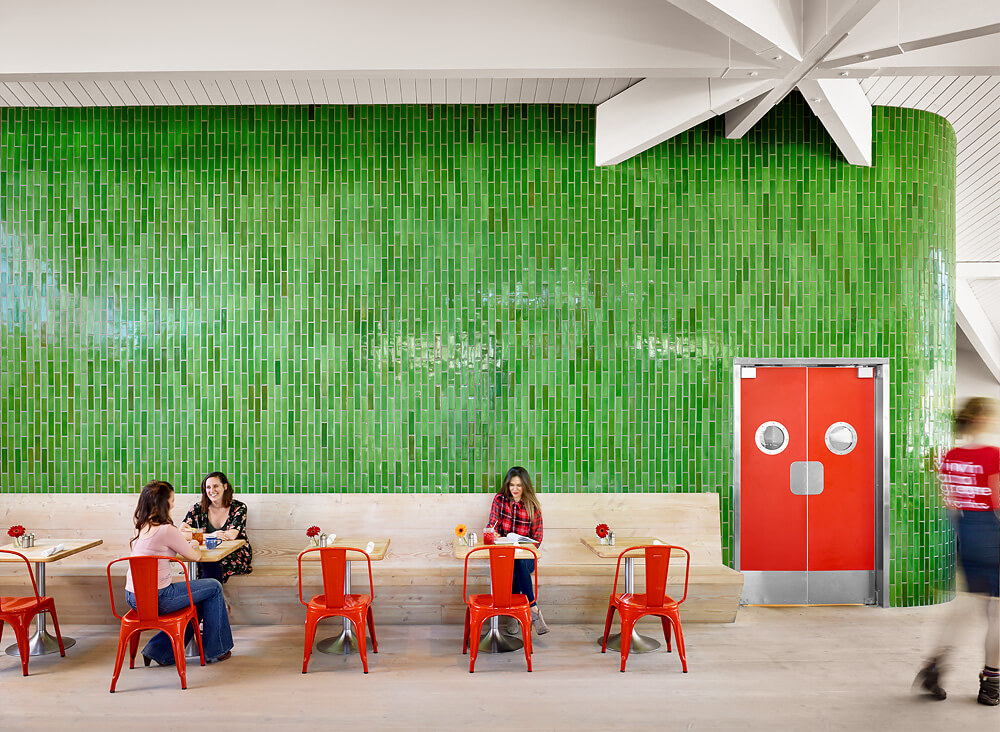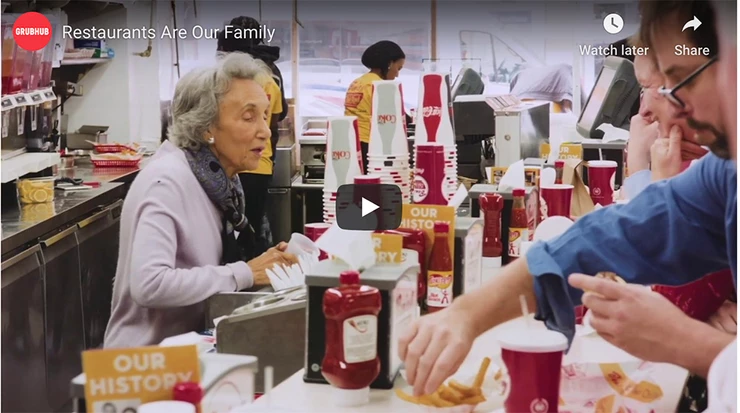In one of the more delightfully punk-rock happenings this week, Vinaigrette owner Erin Wade has penned a real doozy of an open letter for Matt Maloney, the CEO of food delivery service Grubhub.
In the letter (which is included at the bottom of this piece in full), Wade blasts the concept of Grubhub and other such delivery apps and services, claiming that already thin profit margins are ruthlessly slashed by the company’s 30% commission fee. “You are part of the reason why restaurants are so vulnerable to the shock from this pandemic,” she writes.
Wade is no stranger to this line of thought, having published op-eds in the Santa Fe New Mexican and the Austin American-Statesman in Austin, Texas, where she opened a satellite Vinaigrette location in 2016. But this time, it was a recent Grubhub commercial espousing family values and the current American restaurant crisis that set Wade off.
It looks like this:
Setting aside the rather saccharine-sweet tone of that ad, one might be forgiven for assuming Grubhub and similar services are really on the side of the restaurants but Wade says their very nature and existence are an affront to brick-and-mortar restaurants, to her customers and to the idea of good food served well with a side of real-life service.
“One of the things that’s very frustrating for us is that our customers don’t know how bad [these services are] for us,” Wade tells SFR by phone from the very farm where many of Vinaigrette’s ingredients are grown. “They’re exploiting the general goodwill that’s been built up for restaurants for hundreds of years.”
If Wade had her druthers, most of Vinaigrette’s sales would be in-person, sitting down, but the COVID-19 pandemic has shifted how restaurants are forced to business. Still—the worst part? Wade has never even partnered with Grubhub or the other services, but that can’t stop them from featuring her menu on their sites or ordering and delivering the food anyway.
“I am not signed up with Grubhub, and the reason I won’t sign up for that or Door Dash or the locals, is that they all have the same business model,” Wade says. “The basic model is, they charge a commission if you sign up to be a partner, which is, in Grubhub’s case, 30% and sometimes more per meal; especially little small restaurants that sometimes make 5% profit, maybe, it’s so much more than we make on the meal…they’re exacting too dear a price.”
Wade says she and her staff had grown accustomed to which “customers” actually work for a delivery service, but notes that the larger issue is in care taken during the delivery process. To-go orders are certainly a part of Vinaigrette’s business, she explains, but when it comes to pickup—as in food handed to the customer directly from her own vetted staff—she can guarantee a certain level of quality. When it’s being handled by whom she describes as “basically a stranger,” however, there’s no telling how long the food will sit someplace or whether it will be jostled during delivery—and it isn’t Grubhub who faces the repercussions.
“We pay for it,” Wade says. “For example, say we have a special salad the customer knows about but they don’t see it on Grubhub, so they order a $7 garden salad and write down in the [order comments] that they want yams and pork and everything that goes into the I Yam What I Yam salad…that’s an $18 salad.”
Wade is not naïve, however. She understands that any local restaurants hoping to survive must make certain concessions, delivery in less than ideal conditions among them. But rather than bow to the Silicon Valley companies, she’s launched her own delivery service, which is up and running now.
“It’s a temporary solution, but we’re also working on our own proprietary platform now,” she tells SFR. “Right now, I know the drivers who are taking their food are responsible. They’re sanitizing their cars between every trip, wearing gloves and masks—I can’t say that about somebody who’s a stranger.”
It’s hard to say what the effect of her letter will be otherwise. Many reading this right now are probably wondering what they’re supposed to do during the pandemic and many reading this will probably continue to use these services.
Wade concedes that there is truth in that need, and that it’s not going to be possible for every restaurant to put together their own services. Still, she says, with things looking like they do, some Silicon Valley-based middle man simply hurts the bottom line of locally-owned restaurants, no matter how pretty their commercials might be.
“Luckily I’m super-scrappy,” she says with a laugh. “I’ve got deep scrap-itude.”



